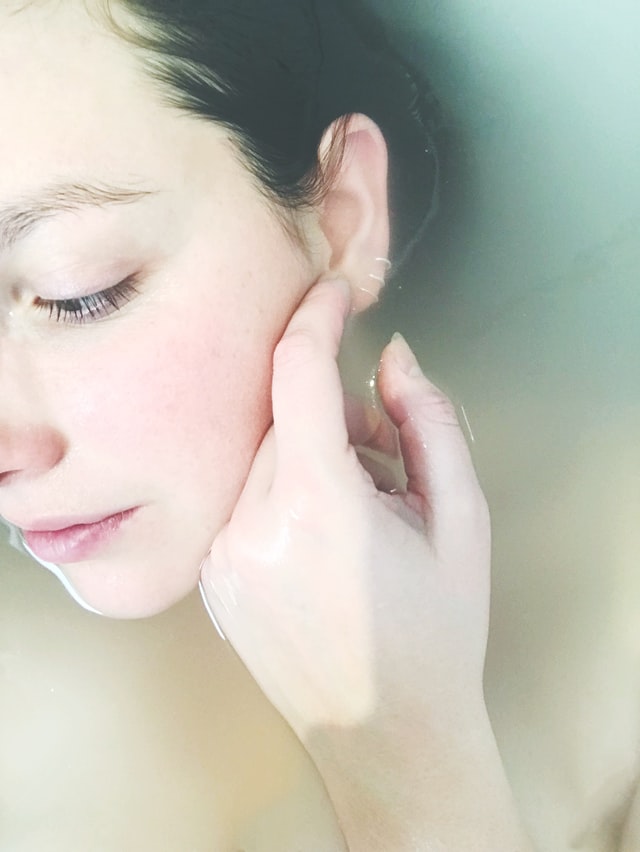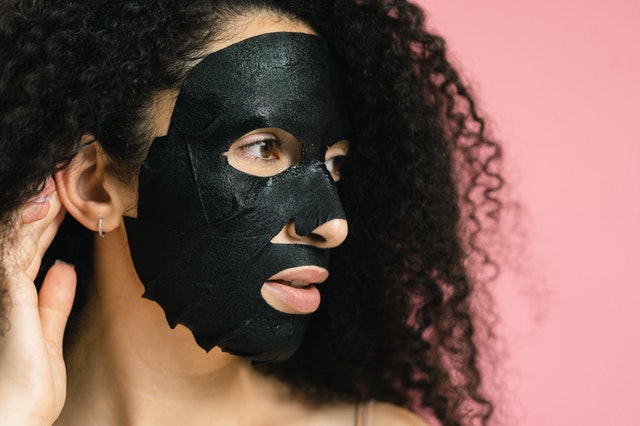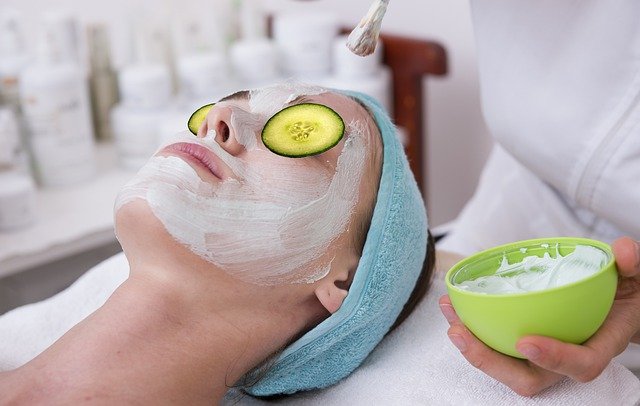You've probably heard that certain ingredients can help brighten hyperpigmentation, but have you ever wondered how they actually work? When you use products containing ingredients like turmeric, cinnamon, or licorice root, you're inhibiting the production of melanin, the pigment responsible for those dark spots. But that's not all – these ingredients also possess antioxidant and anti-inflammatory properties that counteract the oxidative stress and inflammation that can lead to hyperpigmentation. Let's take a closer look at how each of these ingredients contributes to a brighter, more even-toned complexion – the science behind their effects might just surprise you.
Brightening Effects of Turmeric
When it comes to addressing hyperpigmentation, you can count on turmeric's active compound, curcumin, to inhibit the production of melanin, the pigment responsible for dark spots. By using turmeric-infused skincare products or applying a turmeric face mask, you'll be actively working to reduce the appearance of hyperpigmentation. Curcumin achieves this by suppressing the activity of tyrosinase, an enzyme that plays a vital role in melanin production.
You can also make the most of turmeric's brightening effects by consuming it as a dietary supplement or adding it to your meals. Since curcumin has potent antioxidant properties, it helps protect your skin from damage caused by free radicals, which can contribute to the formation of dark spots. When combined with other brightening ingredients, turmeric's effects become even more pronounced. So, if you're looking for a natural and gentle way to address hyperpigmentation, give turmeric a try. With consistent use, you can expect a more even-toned complexion and a visible reduction in dark spots. By harnessing the power of turmeric, you can say goodbye to dull, patchy skin and hello to a brighter, more radiant you.
Cinnamon's Role in Skin Lightening
Cinnamon is another natural ingredient that's gaining attention for its potential to lighten skin tone and reduce the appearance of hyperpigmentation. You might be wondering how cinnamon can help brighten your skin. Research suggests that cinnamon's active compound, cinnamaldehyde, has a significant role to play in this process. This compound has been shown to inhibit the activity of tyrosinase, an enzyme responsible for producing melanin, the pigment that gives your skin its color.
When you use cinnamon-infused skincare products or apply cinnamon oil directly to your skin, you may notice a decrease in melanin production, which can lead to a lighter, more even-toned complexion. Additionally, cinnamon's antioxidant and anti-inflammatory properties help reduce oxidative stress and inflammation, two factors that can contribute to hyperpigmentation. While more research is needed to confirm the extent of cinnamon's skin-lightening effects, incorporating cinnamon into your skincare routine may prove to be a worthwhile natural approach to addressing hyperpigmentation concerns.
Ginger's Anti-Inflammatory Properties
As you explore natural remedies for hyperpigmentation, ginger emerges as another promising ingredient, thanks to its potent anti-inflammatory properties, which can help mitigate the underlying inflammation that contributes to uneven skin tone. You'll find that ginger contains compounds like gingerol and shogaol, which have been shown to reduce inflammation and oxidative stress in the skin. By tackling these underlying issues, ginger can help brighten hyperpigmentation and leave your skin looking more even-toned.
You can harness the power of ginger in various ways, including using ginger essential oil or extract in your skincare products. You can also consume ginger in your diet, either raw or cooked, to reap its benefits from the inside out. When using ginger in your skincare routine, be sure to combine it with other ingredients that complement its anti-inflammatory properties, such as vitamin C or niacinamide. By doing so, you'll be able to maximize the effectiveness of ginger and achieve the desired results. Remember to patch test any new skincare product, including those containing ginger, to confirm you don't have any sensitivity or allergic reactions.
Licorice Root for Hyperpigmentation
In addition to ginger, licorice root is another natural ingredient you can use to combat hyperpigmentation, as it contains compounds like glabridin and liquiritin that have been shown to inhibit the production of melanin, the pigment responsible for dark spots. You'll find that using licorice root extract can substantially reduce the appearance of hyperpigmentation and leave your skin looking smoother and more even-toned.
You can use licorice root in several ways to tackle hyperpigmentation, including making a face mask by mixing the root extract with a carrier oil, or applying it directly onto your skin as a spot treatment. When shopping for licorice root products, you'll want to look for items that contain a high concentration of the root extract, as the quality and effectiveness can vary depending on the brand and formulation. As with any skincare product, it's vital to patch test and start with a low concentration before gradually increasing as your skin becomes more tolerant, minimizing potential side effects and ensuring the best results for your skin. By incorporating licorice root into your routine, you can expect a noticeable improvement in the appearance of hyperpigmentation over time.
Niacinamide's Brightening Benefits
Niacinamide, a form of Vitamin B3, actively works to reduce inflammation and improve hyperpigmentation by boosting collagen production and strengthening your skin's barrier function. As you use niacinamide, you're helping to calm and soothe your skin, reducing redness and irritation that can lead to dark spots. It also inhibits the transfer of melanin to the skin's surface, effectively reducing the appearance of hyperpigmentation.
You'll appreciate the fact that niacinamide is gentle and non-irritating, making it suitable for even sensitive skin. Plus, it's oil-soluble, allowing it to penetrate deep into your skin's layers for maximum effectiveness. When used consistently, niacinamide brings noticeable improvements to your skin's brightness and evenness. To maximize its benefits, look for serums or creams containing around 5% niacinamide, and use them daily as part of your skincare routine. Consistency is key, as niacinamide's effects will build up over time. Remember, you're not just covering up dark spots – you're addressing the underlying issues that cause them in the first place. By committing to regular use, you can enjoy brighter, more even-toned skin.
Vitamin C for Skin Brightening
Your skin's brightness and evenness can also be enhanced by vitamin C, a powerful antioxidant that counteracts the effects of sun exposure and environmental stressors that can cause hyperpigmentation. When you apply vitamin C topically, it helps neutralize free radicals that can damage your skin cells and lead to dark spots. By doing so, vitamin C promotes a more even-toned complexion and brightens dull skin.
You can find vitamin C in various skincare products, including serums, creams, and masks. When choosing a product, look for a stable and potent form of vitamin C, such as sodium ascorbate or magnesium ascorbyl phosphate. These forms are more likely to penetrate your skin effectively and provide the desired benefits. Additionally, be sure to follow the product's instructions and start with a lower concentration to gradually increase as your skin becomes more tolerant. With consistent use, you can harness the brightening power of vitamin C to achieve a more radiant and even-toned complexion. By incorporating vitamin C into your skincare routine, you can say goodbye to dull, hyperpigmented skin and hello to a brighter, more youthful appearance.
Papaya's Enzyme-Based Exfoliation
Papaya's natural enzyme, papain, gently breaks down dead skin cells, making it a highly effective ingredient for enzyme-based exfoliation to brighten and even out hyperpigmented skin. When you use papaya-based products, you're helping to remove the top layer of dead skin cells, revealing smoother, brighter skin. This process also helps to unclog pores and reduce inflammation, which can contribute to hyperpigmentation.
As you exfoliate with papaya, you're also promoting cell turnover, which helps to reduce the appearance of dark spots and hyperpigmentation. Papain's gentle, non-irritating properties make it an excellent option for sensitive skin, unlike harsh chemical exfoliants that can strip your skin of its natural oils. Regular use of papaya-based products can lead to a more even-toned complexion, reduced appearance of fine lines and wrinkles, and a brighter, more radiant glow. By incorporating papaya into your skincare routine, you're taking a natural, effective approach to addressing hyperpigmentation and achieving healthier, more balanced skin.
At a Glance
You've learned how certain ingredients brighten hyperpigmentation. Turmeric, cinnamon, and licorice root inhibit melanin production, while antioxidants like vitamin C and ginger counteract oxidative stress. Niacinamide, papaya, and ginger-based products promote skin brightening and exfoliation. By incorporating these ingredients into your skincare routine, you can reduce hyperpigmentation and achieve a more even-toned and radiant complexion. Remember, consistency and patience are key to seeing noticeable results.






